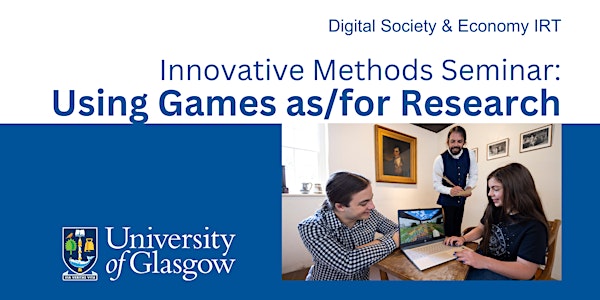This event is being hosted by the College of Social Science Interdisciplinary Research Theme: Digital Society and Economy as part of our Innovative Methods Seminar Series.
Abstract:
We all play games, whether consciously for entertainment and education, or in interacting with digital systems that increasingly ‘gamify’ modern society, hinting towards an unseen future ‘metaverse’. However, how may we further use video games and simulations as research tools? UofGGamesLab runs or hosts different cross-college projects promoting research into games themselves, but also into finding new ways of translating research and data into game form, or using games as innovative research tools. Whether modelling space missions or gaming the effects of generative AI, what are some possibilities and challenges posed by games? Equally, how may our uses of ‘history’ in such games critically change our ways of approaching future simulations?
About our speaker:
Dr Timothy Noël Peacock is a Lecturer in History and War Studies and Co-Director/founder of the University of Glasgow Games and Gaming Lab (UofGGamesLab). He leads up to 35 researchers, interns and programmers as Principal Investigator for funded research and educational cross-disciplinary innovation projects. His research ranges across nuclear history, space history/security, games and wargaming, to AI and politics, including the socio-political and military impacts of new technologies.
About the Innovative Methods Seminar series:
Our workshops run for 50 min. each with time for presentation and Q&A. We will have one speaker per each event and all events will be hosted online, via Zoom. Every speaker will share their digital methodology/methods and the project in which the methodology was applied or developed, with a particular focus on the innovative aspects of that methodology, including benefits, challenges, ethical dimensions, challenges, etc. The audience for these workshops are members of the Digital Society and Economy Interdisciplinary Research Theme, including peer scholars and doctoral students.
